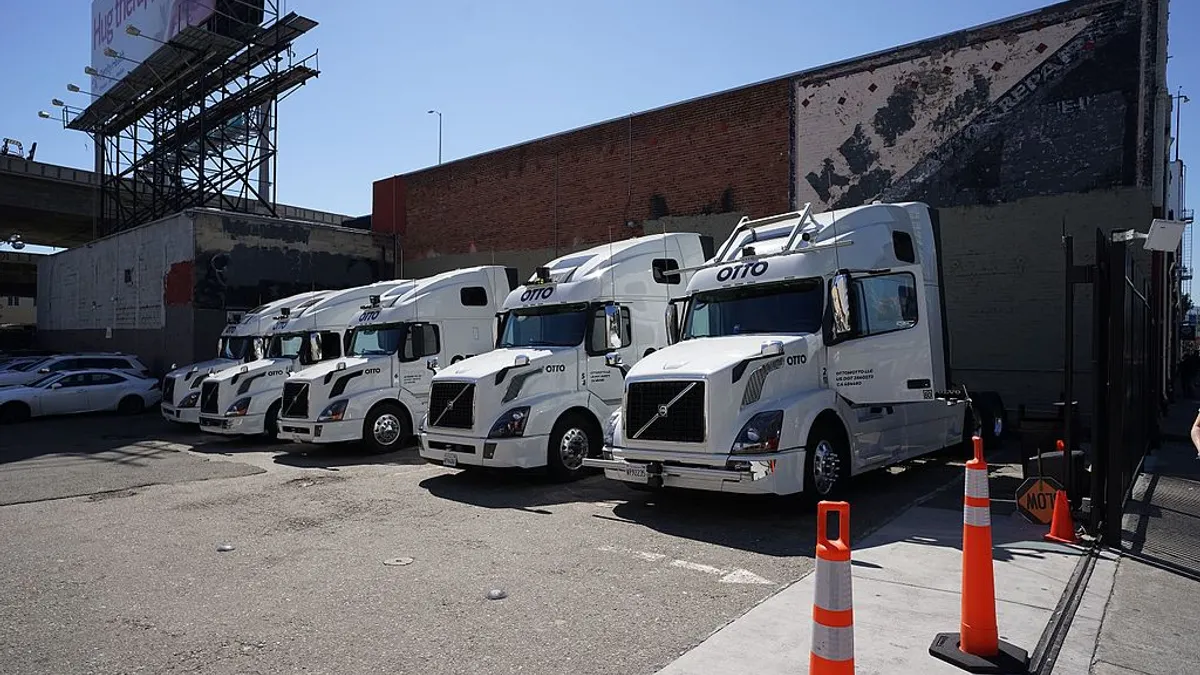Dive Brief:
- A trucker strike in Brazil last month is still choking up supply chains, holding back shipments of soy beans, meat and corn as truckers demand a final deal from the government.
- At least 60 ships in Brazilian ports face loading delays, Reuters reported. "We should be moving 450,000 tonnes of goods to ports every day, but we are not,” said Brazil's Agriculture Minister Blairo Maggi this week.
- Truckers are protesting a 50% rise in fuel prices over the past year and demanding lower taxes and tolls, the Washington Post reported. In negotiations so far, the government has promised minimum freight prices, exemptions from some tolls for trucks not in use and a 60-day reduction in diesel prices.
Dive Insight:
While strikes like this one may win unions some concessions, they often deliver a gut punch to other links in the supply chain — including shippers, manufacturers and consumers.
The trucker strike left Brazilian airports without fuel, supermarkets facing shortages and farmers fearing that millions of animals will die from lack of feed, The Wall Street Journal reported. It has also stifled forward sales of soy crops, Reuters reported, because traders can't set their prices with uncertain transportation costs. The strike halted production and shipments in Brazil's biggest export industries, including soy products, meat and sugar.
And the 60-day diesel discount will cost Brazil at least $2.67 billion, prompting the government to cut health and education spending and an export incentive to compensate, JOC.com reported.
"Sometimes [in a strike], one group is better off but other parts of the economy get hurt," said Beth Davis-Sramek, associate professor of supply chain management at Auburn University, in an interview with Supply Chain Dive.
Such was the case in the nine-month slow-down at ports in Los Angeles and Long Beach in 2014-15, Davis-Sramek noted. The economy lost millions of dollars a day as parts coming from Asia idled in ships in the middle of the ocean, unable to dock.
In the West Coast strikes, the government got involved with negotiations, but often, market forces shake things out, Davis-Sramek said. For example, if unemployment is low, as it is now, companies will be forced to increase wages without much union pressure.
There's still questions as to whether the Brazilian government will follow through on its minimum freight price promises or leave it to market forces to settle the issue, Reuters reported.












